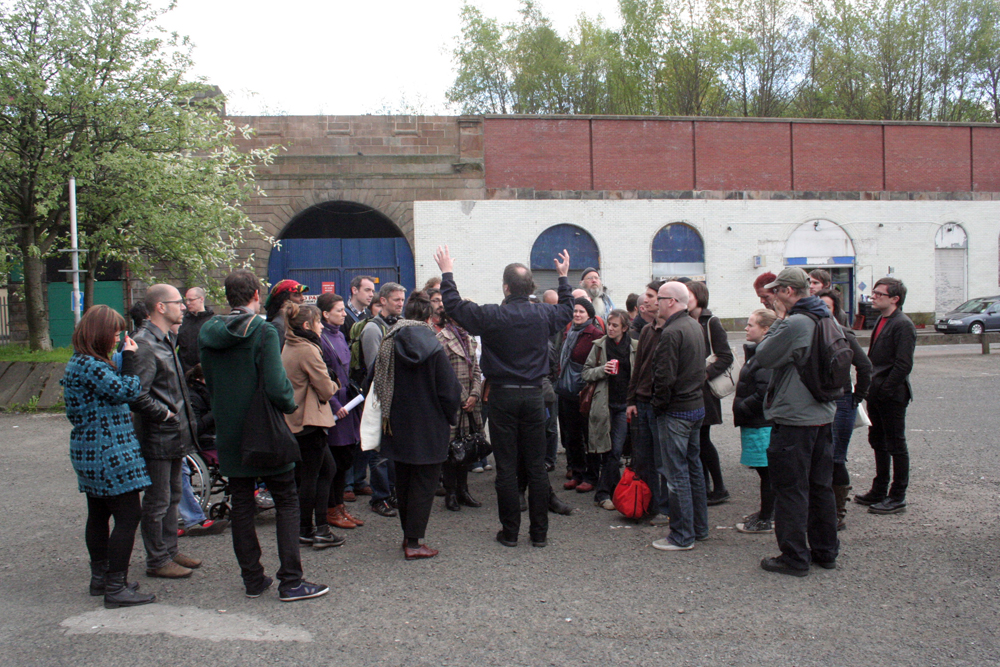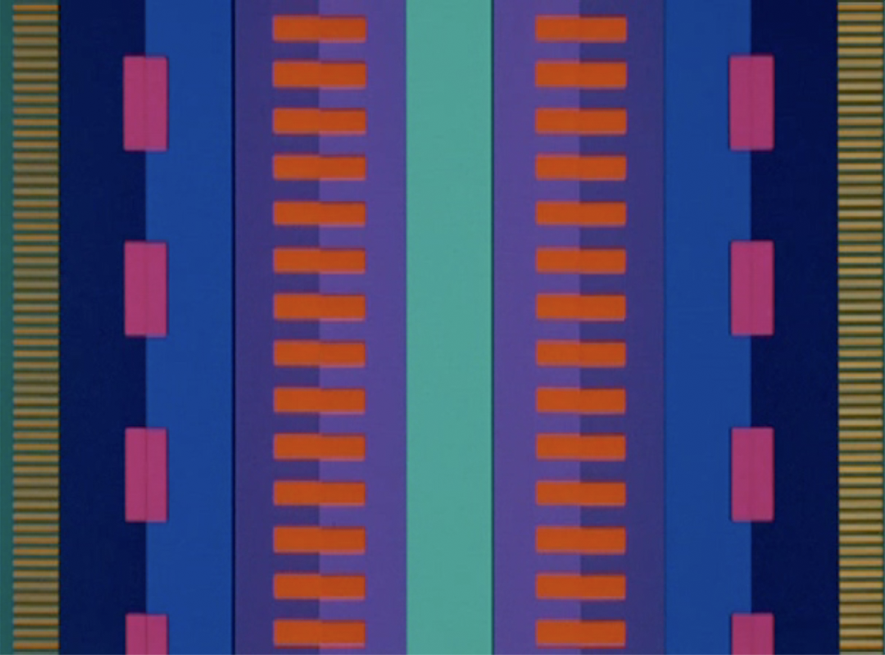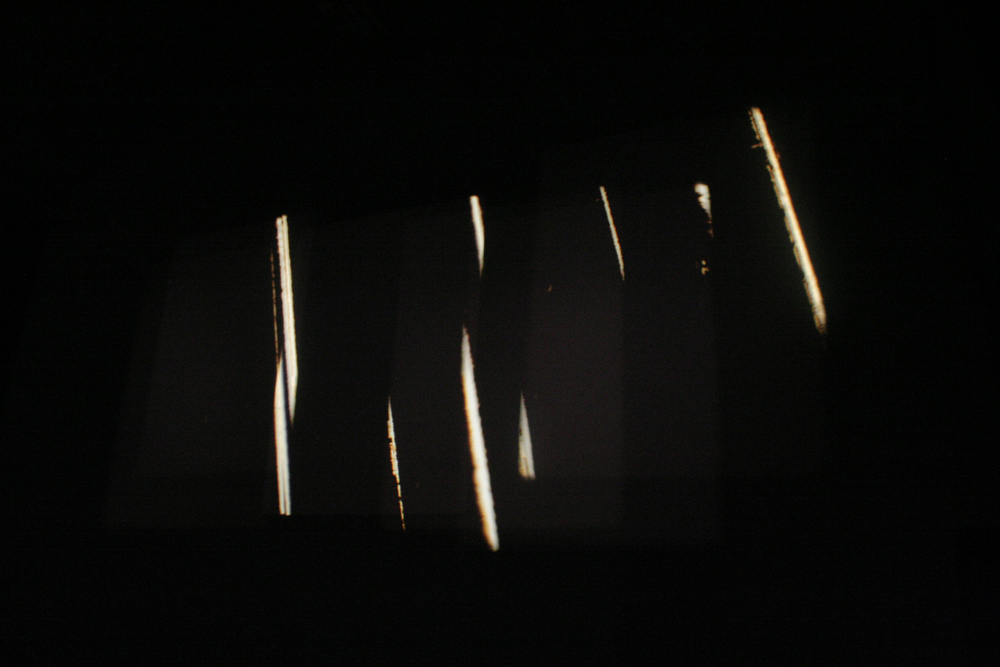
In The Shadow of Shadow – Walk
The Strickland Distribution Ultra-red
A public walk from George Square to the Barras market bringing contributions from researchers, activists and artists in a form of live critical praxis
Arika have been creating events since 2001. The Archive is space to share the documentation of our work, over 600 events from the past 20 years. Browse the archive by event, artists and collections, explore using theme pairs, or use the index for a comprehensive overview.

A public walk from George Square to the Barras market bringing contributions from researchers, activists and artists in a form of live critical praxis

Black-clad with an ominous aura created by their distorted guitar epics, burnt-out ballads and raucous mantric jams.

The first of two short film programmes featuring works that blur the boundaries between music and film from artists who cross and redefine those long held divisions. This programme focuses on the forebearers of filmic and musical innovation over the last 70 years.

A multi-media harp and spoken word tribute to the incalculable, the in-deducible, the suspicious static noise that accompanies the voice of truth, and the attempted aberrations in the domain of emergence.

Guy Sherwin gives a kind of annotated, chat through his optical sound films
Edinburgh. Nigh-inaudible improv jams with disabled instruments from the makers of Giant Tank and Pizza Boy Delivery.


Do art forms like black radical poetry, free jazz and improvisation create a space for the performance of freedom? Did they ever? And can they still do so now?

A dialogical meeting of Baraka’s radical poetry and Grimes’ free jazz syncopation.

A performance bearing witness to a struggle built upon patience and collective action from the great multi-instrumentalist and member of the AACM.

The pieces in the programme switch between silent film/ imageless sound, but we wanted to have a think about how ideas can take up residency on either side of the sound/ image border, without having to inhabit both at the same time.

Do ideas emerging from particle physics help to re-think of blackness as a mode of life in which it’s possible to practice difference without separation?